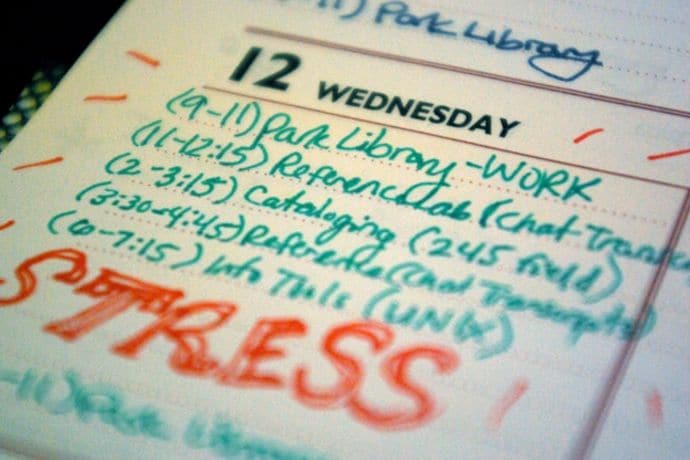How to Reduce Teacher Stress and Anxiety
March 12, 2015

Between testing season and students’ dwindling attention spans, it’s no wonder teachers often name spring as the most difficult time of year in the classroom. With these changes, teachers may experience increased stress levels—and its partner in crime, anxiety—inside and outside the classroom. “When I notice that my anxiety is hindering my performance (e.g., it’s keeping me up at night, my worrisome thoughts prevent me from getting things done, or I’m experiencing physical symptoms of anxiety), I know it’s time to practice some self-care,” reports TeacherPop’s mental health expert, Janna Miller.
If you’re experiencing panic attacks in the classroom, you should absolutely consult a mental health professional. Consider addressing low-grade anxiety with some simple lifestyle changes in sleep patterns, diet, and mindfulness. This 2013 article from Psychology Today on five ways to reduce anxiety and stop stress includes some useful “self-soothing” techniques, such as deep breathing, muscle relaxation, and positive self-talk. A little goes a long way here. Even if you’re able to find a few minutes first thing in the morning to incorporate these practices into your routine, you may see huge improvement in your overall well-being.
Finally, it’s important to remember that if you do experience anxiety or panic in front of your students, you haven’t lost control of your class or damaged your credibility. “When my students break down (either angrily or emotionally), I [do] my best to remember that they are human, that no one is perfect, and that my job when that happened is, among other things, to show them kindness,” writes Christina Torres, English teacher at the University Laboratory School in Hawai’i. “Yes, I need to be the leader in front of my students. Still, I also need to remember that we are all human and imperfect, including me.” Christina adds: “If I could admit and accept my own weaknesses, it would show my students that it is okay to break down—because there is someone in the world who will show you kindness and help you get back up.” For more information about teacher health and well-being, please check out TeacherPop’s blog posts on Your Best Self.
Photo credit: Flickr


